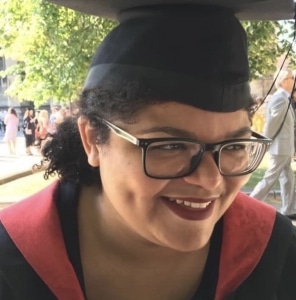Hi! My name is Nina and I am a first year PhD student in the Department of Psychology at the University of Bath. I am funded by the Economic and Social Research Council through the South West Doctoral Training Partnership, and my project is focused on furthering our understanding of fatigue within adolescent depression. What we know so far is that depression often starts during adolescence, and fatigue is one of the main symptoms reported. Fatigue can be highly problematic and disabling, yet it is not routinely addressed or treated within child and adolescent mental health services. There is a lot we do not know about fatigue in adolescent depression, so my project is predominantly exploratory, with the aim of starting to address this gap in our knowledge.

As I have just started my PhD (and we are in the middle of a pandemic), it is difficult to say what a typical day or week looks like. It changes based on my priorities, deadlines, and any events I am attending, alongside changes in everyday life. At the moment, I am focusing on drafting protocols for my studies, reading the literature around my subject area, and attending workshops that help to hone my skills as a researcher. I have recently finished marking my first batch of undergraduate lab reports, which was a steep but enjoyable learning curve – if you had asked me this question a week ago, I would have said “Reports! Lots and lots of reports!”.
I have enjoyed being able to focus on one topic that I am really passionate about. I loved my undergraduate and Masters degrees, but the focus is more on breadth than depth, with the exception of dissertations. It is interesting to gain knowledge about a range of different areas, but I am definitely enjoying my chance to explore something in greater depth and become an expert in this particular field.


The most challenging part has been starting a PhD during the COVID-19 pandemic and how isolating it can feel. When I submitted my application in January, my idea of what a PhD would be like is vastly different to how it currently has to be, mostly in relation to homeworking. My university, department and cohort are trying very hard to make sure we develop strong, supportive networks through online platforms, but it is just not the same as face-to-face contact. I have my fingers crossed that things will be different this time next year.

The University of Bath is a brilliant place to study for many reasons – it has a fantastic reputation, a beautiful campus, and so many opportunities for growth. For me, the strength of my department and the doctoral college were particularly important considerations. The Department of Psychology is one of the best in the UK, with such diverse, inspiring research being conducted on a daily basis, and I feel lucky to be a part of it. There are also so many opportunities available through the doctoral college in terms of training, professional development, and networking. Something is always happening, even during the pandemic, and that really helps with feelings of isolation.
I absolutely love to read; you can rarely find me without a book (fiction, mind you – I read enough non-fiction for my PhD!). I also enjoy gaming, arts and crafts, and watching too much television on Netflix. I have a close relationship with my family, so enjoy spending time with them when I can, although this has not been as possible recently. The same goes for travelling – I cannot wait to get back out there.
Follow her on Twitter and check out her University and ResearchGate pages using the links below:

